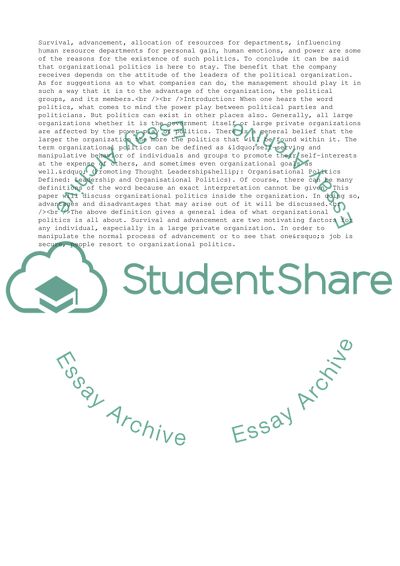Cite this document
(The Role of Organisational Politics in Organisations Coursework Example | Topics and Well Written Essays - 1500 words, n.d.)
The Role of Organisational Politics in Organisations Coursework Example | Topics and Well Written Essays - 1500 words. https://studentshare.org/management/1713804-discuss-the-role-that-politics-plays-in-organisational-life-what-are-their-advantages-and-disadvantages-of-politics-in-organisations
The Role of Organisational Politics in Organisations Coursework Example | Topics and Well Written Essays - 1500 words. https://studentshare.org/management/1713804-discuss-the-role-that-politics-plays-in-organisational-life-what-are-their-advantages-and-disadvantages-of-politics-in-organisations
(The Role of Organisational Politics in Organisations Coursework Example | Topics and Well Written Essays - 1500 Words)
The Role of Organisational Politics in Organisations Coursework Example | Topics and Well Written Essays - 1500 Words. https://studentshare.org/management/1713804-discuss-the-role-that-politics-plays-in-organisational-life-what-are-their-advantages-and-disadvantages-of-politics-in-organisations.
The Role of Organisational Politics in Organisations Coursework Example | Topics and Well Written Essays - 1500 Words. https://studentshare.org/management/1713804-discuss-the-role-that-politics-plays-in-organisational-life-what-are-their-advantages-and-disadvantages-of-politics-in-organisations.
“The Role of Organisational Politics in Organisations Coursework Example | Topics and Well Written Essays - 1500 Words”. https://studentshare.org/management/1713804-discuss-the-role-that-politics-plays-in-organisational-life-what-are-their-advantages-and-disadvantages-of-politics-in-organisations.


